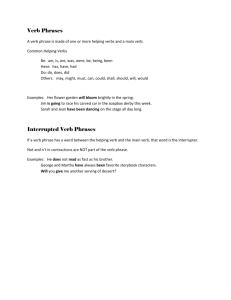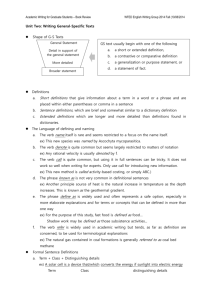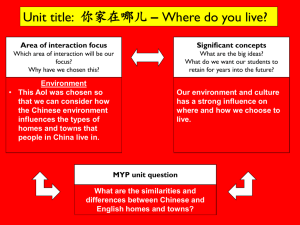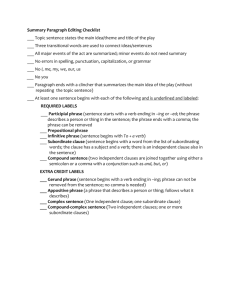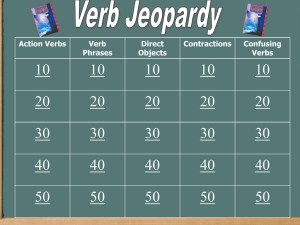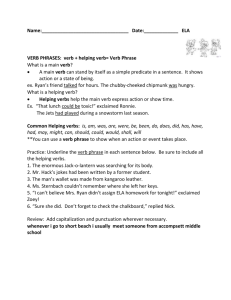The 19-year-old pianist and composer performed his most recent
advertisement
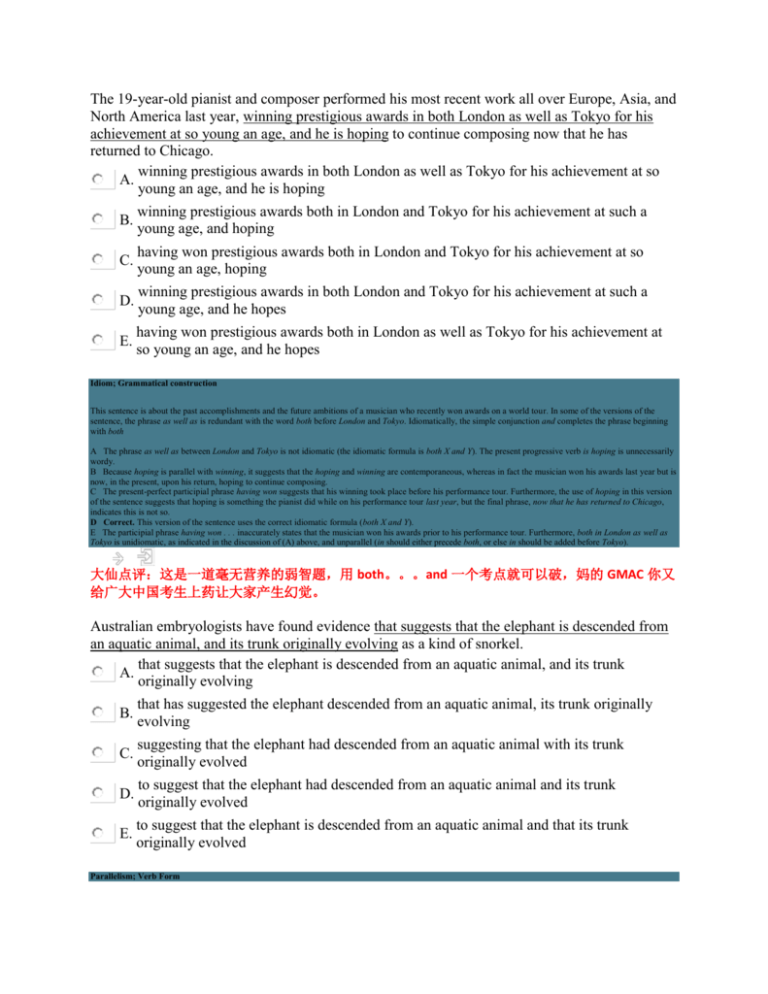
The 19-year-old pianist and composer performed his most recent work all over Europe, Asia, and North America last year, winning prestigious awards in both London as well as Tokyo for his achievement at so young an age, and he is hoping to continue composing now that he has returned to Chicago. winning prestigious awards in both London as well as Tokyo for his achievement at so A. young an age, and he is hoping B. winning prestigious awards both in London and Tokyo for his achievement at such a young age, and hoping C. having won prestigious awards both in London and Tokyo for his achievement at so young an age, hoping D. winning prestigious awards in both London and Tokyo for his achievement at such a young age, and he hopes E. having won prestigious awards both in London as well as Tokyo for his achievement at so young an age, and he hopes Idiom; Grammatical construction This sentence is about the past accomplishments and the future ambitions of a musician who recently won awards on a world tour. In some of the versions of the sentence, the phrase as well as is redundant with the word both before London and Tokyo. Idiomatically, the simple conjunction and completes the phrase beginning with both A The phrase as well as between London and Tokyo is not idiomatic (the idiomatic formula is both X and Y). The present progressive verb is hoping is unnecessarily wordy. B Because hoping is parallel with winning, it suggests that the hoping and winning are contemporaneous, whereas in fact the musician won his awards last year but is now, in the present, upon his return, hoping to continue composing. C The present-perfect participial phrase having won suggests that his winning took place before his performance tour. Furthermore, the use of hoping in this version of the sentence suggests that hoping is something the pianist did while on his performance tour last year, but the final phrase, now that he has returned to Chicago, indicates this is not so. D Correct. This version of the sentence uses the correct idiomatic formula (both X and Y). E The participial phrase having won . . . inaccurately states that the musician won his awards prior to his performance tour. Furthermore, both in London as well as Tokyo is unidiomatic, as indicated in the discussion of (A) above, and unparallel (in should either precede both, or else in should be added before Tokyo). 大仙点评:这是一道毫无营养的弱智题,用 both。。。and 一个考点就可以破,妈的 GMAC 你又 给广大中国考生上药让大家产生幻觉。 Australian embryologists have found evidence that suggests that the elephant is descended from an aquatic animal, and its trunk originally evolving as a kind of snorkel. that suggests that the elephant is descended from an aquatic animal, and its trunk A. originally evolving B. that has suggested the elephant descended from an aquatic animal, its trunk originally evolving C. suggesting that the elephant had descended from an aquatic animal with its trunk originally evolved D. to suggest that the elephant had descended from an aquatic animal and its trunk originally evolved E. to suggest that the elephant is descended from an aquatic animal and that its trunk originally evolved Parallelism; Verb Form The clearest, most economical way of expressing the two things suggested by Australian embryologists’ evidence is to format them as relative clauses serving as parallel direct objects of the verb suggest. It is awkward and confusing to string together relative clauses: evidence that suggests that the elephant. … A clearer way of making this connection is to turn the verb suggests into a participle modifying evidence. The word descended is a predicate adjective following the present-tense verb is and describing the present-day elephant. The verb evolved should be past tense because it describes how the trunk of the elephant originally evolved, not how it is evolving today. A The string of relative phrases is awkward and confusing; the phrase following the conjunction and is not parallel with the relative clause that the elephant is descended. … B The evidence still suggests these things about the evolution of the elephant and its trunk, so the present-perfect verb tense is inaccurate. C Had descended is the wrong verb tense; with cannot be followed by an independent clause. D Had descended is the wrong tense; the phrase following the conjunction and does not parallel the relative clause that precedes the conjunction. E Correct. The two dependent clauses beginning with that are in parallel form and contain verbs in the correct tenses. 大仙点评:有点勉强的一道题目,主要是 suggest 发出者其实是 abc 较为清楚,但两个事件的平行 对象的确是 E 处理得最好。另外时态也是一个关键考点,整个题目都是围绕事件的主次和动词作 文章。 Having been named for a mythological nymph who cared for the infant Jupiter, the asteroid named Ida, in the middle of the belt of asteroids that orbit the Sun between Mars and Jupiter, was discovered in 1884. Having been named for a mythological nymph who cared for the infant Jupiter, the A. asteroid named Ida, in the middle of the belt of asteroids that orbit the Sun between Mars and Jupiter, was discovered in 1884. Discovered in 1884, the asteroid Ida, named for a mythological nymph who cared for the B. infant Jupiter, is in the middle of the belt of asteroids that orbit the Sun between Mars and Jupiter. In the middle of the belt of asteroids that orbit the Sun between Mars and Jupiter, the C. asteroid Ida, discovered in 1884 and named for a mythological nymph who cared for the infant Jupiter. The asteroid Ida, named for a mythological nymph who cared for the infant Jupiter and D. discovered in 1884, is in the middle of the belt of asteroids to orbit the Sun between Mars and Jupiter. Ida, an asteroid discovered in 1884 and which was named for a mythological nymph who E. cared for the infant Jupiter, is in the middle of the belt of asteroids to orbit the Sun between Mars and Jupiter Rhetorical construction; Logical predication; Grammatical construction This sentence describes a discovery that occurred in 1884 and provides some additional information about the object that was discovered. The most effectively worded answer choice opens with a past-participial phrase (discovered . . . ) describing the subject of the sentence, the asteroid Ida. Ida’s discovery is logically prior to its naming, described in a second past, following the subject (named . . . ). The sentence is then completed with a present tense linking verb is + prepositional phrase to explain Ida’s location. A Opening with a past perfect passive verb, Having been named, this version of the sentence illogically suggests that being named for a mythological nymph preceded the discovery of Ida. B Correct. This version is clear, logically coherent, and grammatically correct. C This version of the sentence is ungrammatical; it has no main verb for the subject the asteroid Ida. D The sequence of events is obscured by the placement of named before discovered in the compound participial phrases. The infinitive form to orbit is ungrammatical in place of the relative clause. E This sentence awkwardly attempts to use a compound conjunction and to join the past participial phrase discovered in 1884 with the relative clause which was named . . . . The infinitive form to orbit is ungrammatical in place of the relative clause. 大仙:这个 E 选项杀得很勉强啊,其实有很简单的理由,反红处俩定语成分不是同一个性质。 According to a recent study of consumer spending on prescription medications, increases in the sales of the 50 drugs that were advertised most heavily accounts for almost half of the $20.8 billion increase in drug spending last year, the remainder of which came from sales of the 9,850 prescription medicines that companies did not advertise or advertised very little. heavily accounts for almost half of the $20.8 billion increase in drug spending last year, A. the remainder of which came B. heavily were what accounted for almost half of the $20.8 billion increase in drug spending last year; the remainder of the increase coming C. heavily accounted for almost half of the $20.8 billion increase in drug spending last year, the remainder of the increase coming D. heavily, accounting for almost half of the $20.8 billion increase in drug spending last year, while the remainder of the increase came E. heavily, which accounted for almost half of the $20.8 billion increase in drug spending last year, with the remainder of it coming Grammatical construction; Verb form The sentence indicates that according to research, increases in sales of the relatively small number of the most heavily advertised drugs accounted for nearly half of last year’s total increase in drug spending. The sentence is flawed because of subject-verb disagreement, and an ambiguity in the referent of which. A The singular verb form accounts fails to agree in number with the plural subject increases. What the relative pronoun which refers to is unclear; to make clear sense, it should refer to the . . . increase. B The phrase were what accounted is unnecessarily wordy; the semicolon before the remainder signals that a complete clause will follow, but what follows is not a complete clause. C Correct. The sentence is clear and grammatically correct. The subject and verb agree. D In the resulting sentence, no main verb follows the main subject increases. E The resulting sentence lacks a main verb for the main subject increases. 大仙:此题在中国早有流传,见于 GWD 题,正确选项出现了独立主格结构。全题主要考察句子 基本结构,如主谓一致,分号两边必须都是完整句子,等等。 From an experiment using special extrasensory perception cards, each bearing one of a set of symbols, parapsychologist Joseph Banks Rhine claimed statistical proof for subjects who could use thought transference to identify a card in the dealer’s hand. A. for subjects who could use thought transference to identify a card in the dealer’s hand B. for a card in the dealer’s hand to be identified by subjects with thought transference C. of subjects able to identify with thought transference a card in the dealer’s hand D. that subjects could identify a card in the dealer’s hand by using thought transference E. that subjects are capable to use thought transference for identifying a card in the dealer’s hand Idiom; Rhetorical construction This sentence is meant to indicate that Joseph Banks Rhine claimed that a certain experiment statistically proved that subjects could identify what symbol was on a card in a dealer’s hand by using thought transference. The present version of the sentence does not convey the intended meaning well, however. What should follow proof is a statement of the assertion that Rhine claims the experiment has statistically proved, linked to the word proof by the word that. Instead proof is followed by a prepositional phrase for subjects who . . . . A This version of the sentence inappropriately attempts to describe the claim by using a prepositional phrase, for subjects who . . . . B Like (A), this version of the sentence inappropriately attempts to describe the claim by using a prepositional phrase, for a card in . . . . C Like (A) and (B), this version of the sentence inappropriately attempts to describe the claim by using a prepositional phrase. While proof might reasonably be followed by of, the phrase that follows the preposition is ungrammatical, requiring a participle to modify subjects, such as being able to . . . . D Correct. This version correctly uses the idiom proof that followed by an assertion. E While this version of the sentence correctly follows proof with that followed by an assertion, it fails to use the appropriate idiom with capable; instead of capable to use, it should have capable of using. 大仙:老三篇了,修饰抽象有内涵名词最好用从句。



